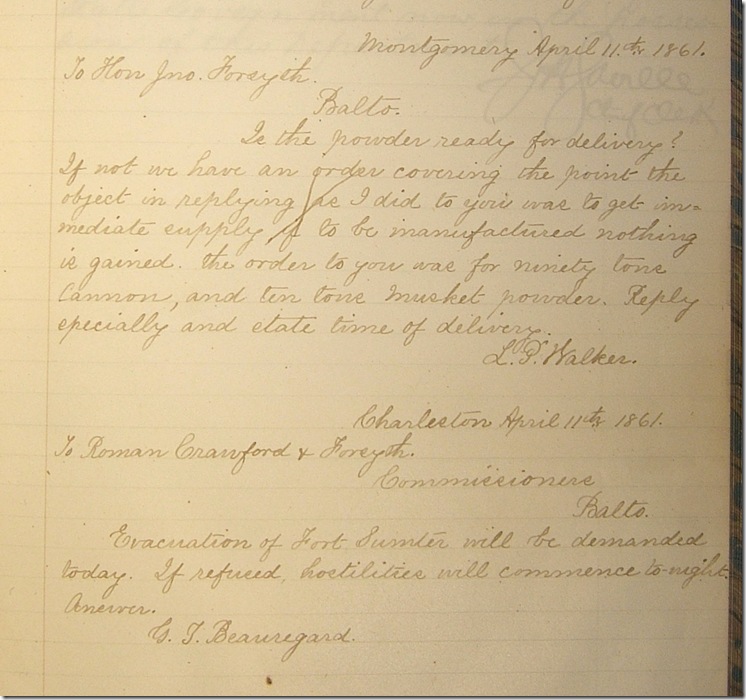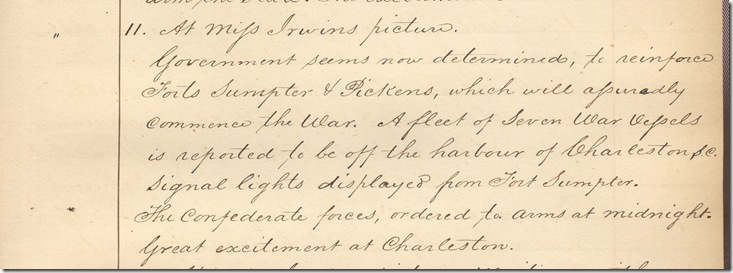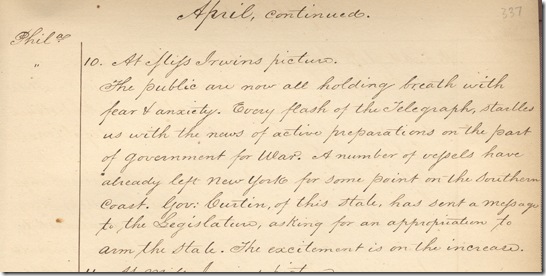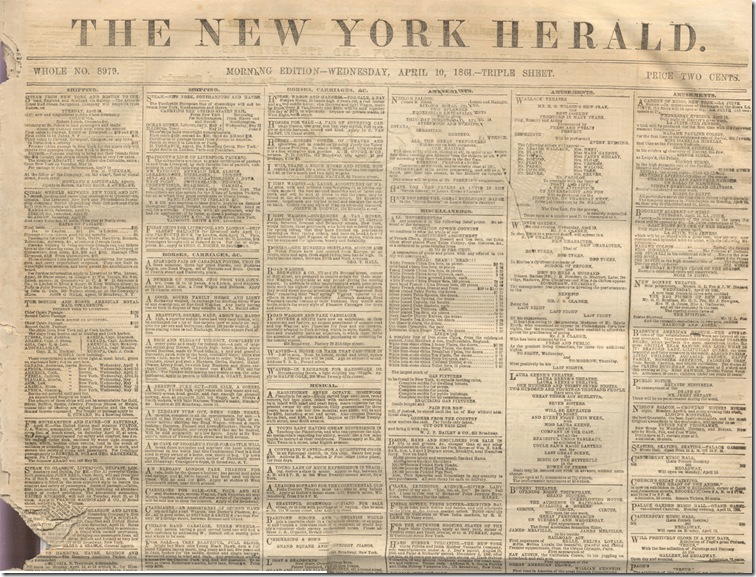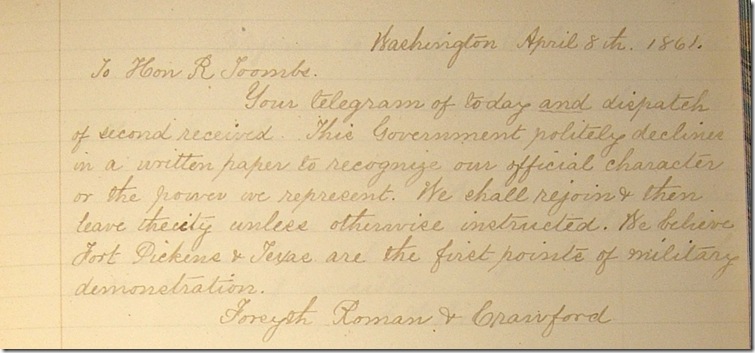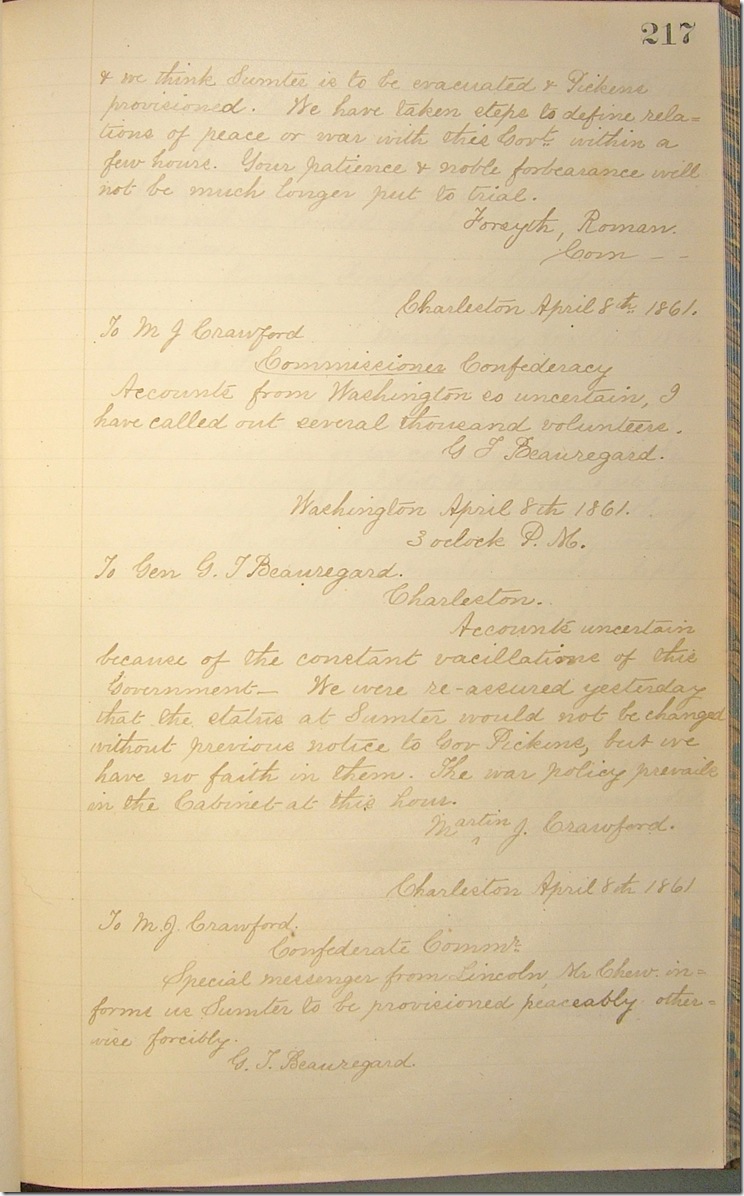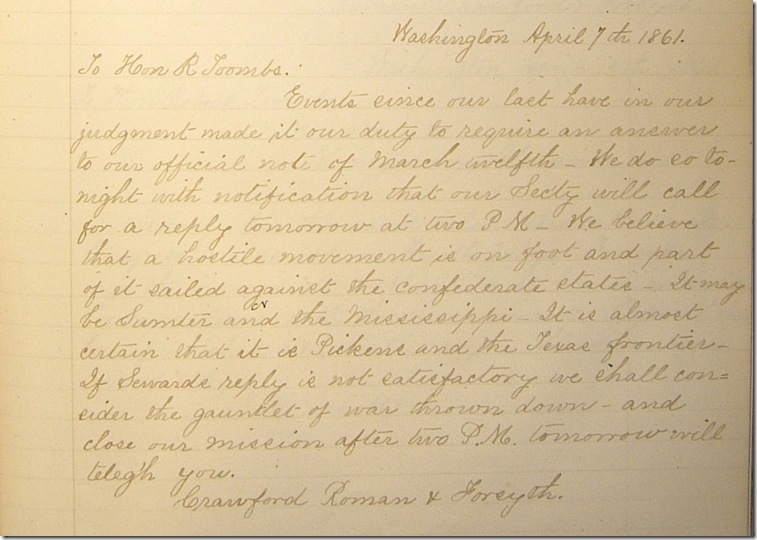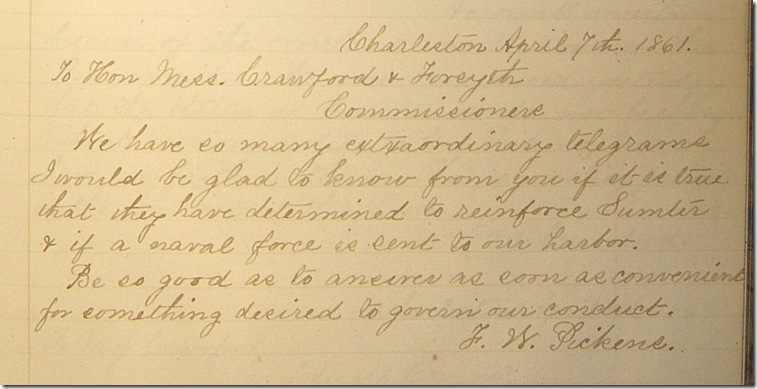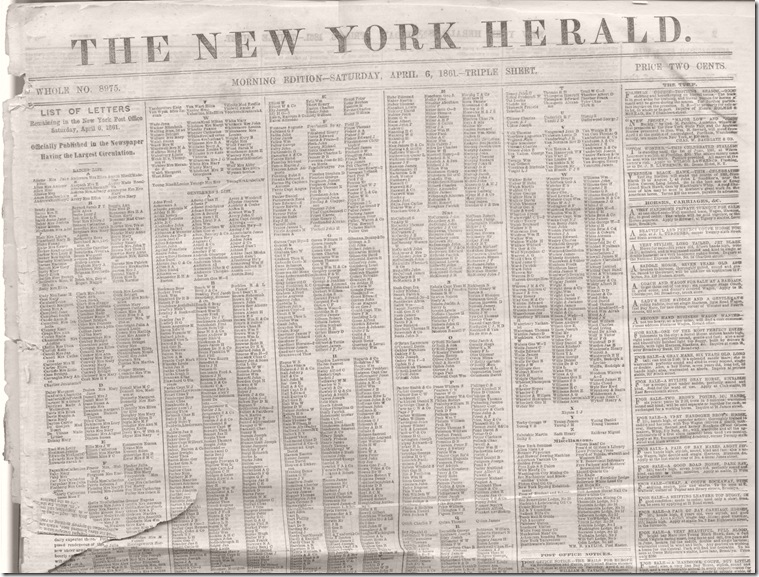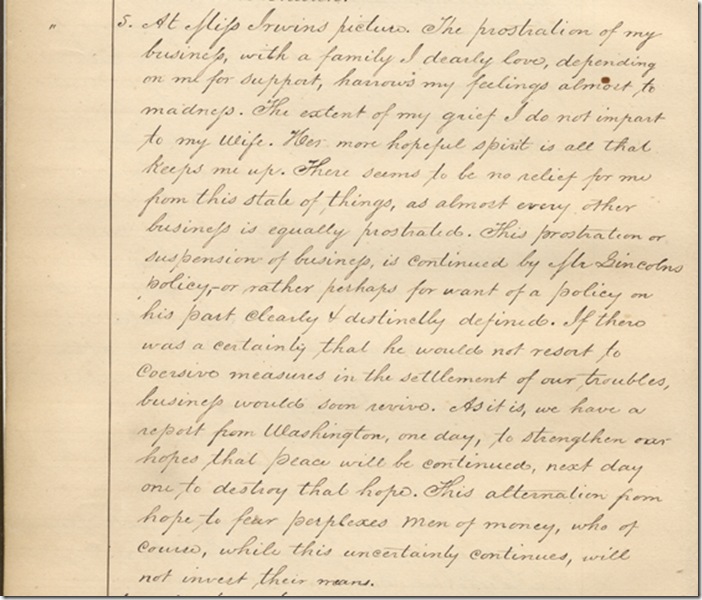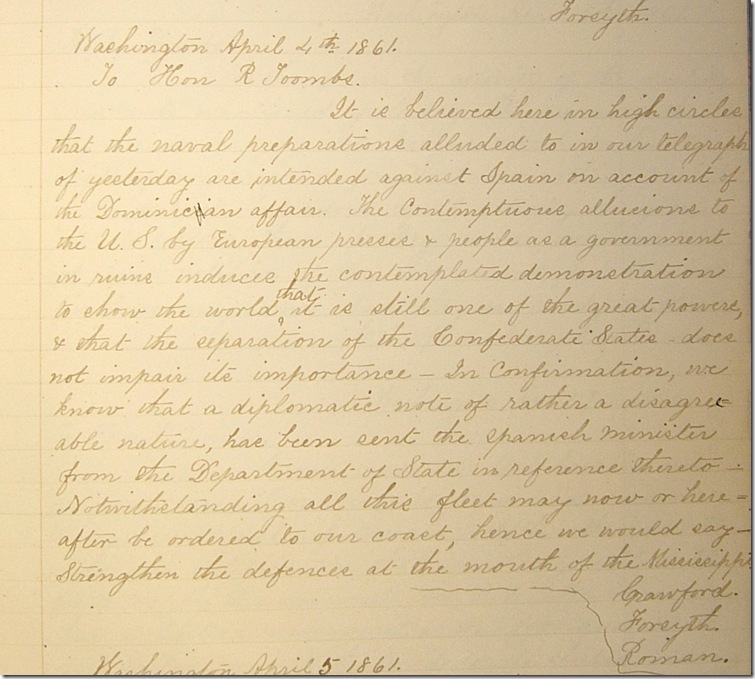During March and April 1861, after seven states had seceded and formed the Confederate States of America but before war broke out, Confederate Secretary of State Robert Toombs appointed Martin J. Crawford, John Forsyth, and A.B. Roman as Commissioners of the Confederate States to Washington, DC. Their purpose was to seek diplomatic recognition from the United States and negotiate peace—at least for a while. Central to the question of peace or war was whether the United States would continue to retain claim over federal forts located in the southern states that had seceded, including Fort Pickens in Florida and Fort Sumter in South Carolina. This item is transcribed from a letter book maintained by J.T. Pickett, secretary to the commissioners, containing copies of 72 letters, dispatches, and telegrams sent and received by the commissioners from the time of their appointment to the demand for the evacuation of Fort Sumter.
Montgomery April 11th 1861.
To Hon Jno. Forsyth.
Balto.
Is the powder ready for delivery? If not we have an order covering the point the object in replying as I did to you was to get immediate supply if to be manufactured nothing is gained. The order to you was for ninety tons cannon, and ten tons musket powder. Reply especially and state time of delivery.
L.P. Walker.
Charleston April 11th 1861.
To Roman Crawford & Forsyth.
Commissioners
Balto.
Evacuation of Fort Sumter will be demanded today. If refused, hostilities will commence tonight. Answer.
G.T. Beauregard.
Citation:Commissioners of the Confederate States of America to the Government of the United States, letter book.Washington, D.C., Feb 27-April 11, 1861.AMS 811/20
